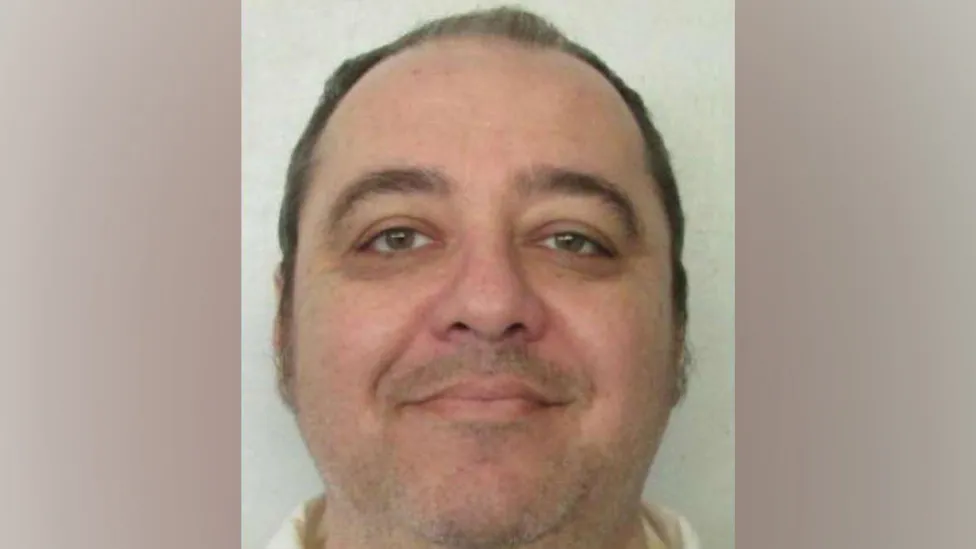An Alabama death row inmate is hours away from undergoing the first US execution by nitrogen gas after losing last-minute appeals.
The US Supreme Court and a lower appeals court have declined to block what Kenneth Eugene Smith’s lawyers called a cruel and unusual punishment.
Nitrogen is to be pumped into his body through a mask for up to 15 minutes.
Smith, 58, was convicted in 1989 of murdering a preacher’s wife, Elizabeth Sennett, in a killing-for-hire.
Alabama’s execution is scheduled to take place from Thursday.
Smith would be the first person to be put to death by this method in the US and, according to the Death Penalty Information Center, anywhere in the world.
Lawyers for the inmate – who has been on death row since 1996 – told the BBC on Wednesday night that they were lodging another appeal to the nation’s top court in the hope of an 11th-hour reprieve.
Smith told the BBC earlier this week through written answers that the wait to learn his fate felt like “torture”.
Alabama already tried to execute the convicted murderer by lethal injection two years ago.
But the attempt failed because executioners were unable to raise a vein before the state’s death warrant expired at midnight.
Smith was one of two men convicted of murdering 45-year-old Mrs Sennett in a $1,000 (£790) killing-for-hire on 18 March 1988.
She was beaten with a fireplace implement and stabbed in the chest and neck, her death staged to look like a home invasion and burglary.
Her husband, a debt-ridden preacher, had orchestrated the scheme to collect insurance money. He killed himself as investigators closed in.
Smith’s fellow hitman, John Forrest Parker, was executed in 2010.
At his trial Smith admitted to being present when the victim was killed, but said he did not take part in the attack.
The UN’s High Commissioner for Human Rights has said gassing Smith could amount to torture or other cruel, inhuman or degrading treatment, and called for a halt.
Smith’s lawyers lodged a challenge with the Supreme Court, arguing that putting convicts through multiple execution attempts violates the Eighth Amendment of the US Constitution, which protects against “cruel and unusual” punishment.
On Wednesday, the justices declined to hear the appeal and denied his request to halt the execution. No justice publicly dissented from the ruling.
Smith had also made a separate legal challenge to the lower 11th US Circuit Court of Appeals – where he contested the legality of Alabama’s nitrogen gas protocol.
But that court also rejected the inmate’s request for an injunction in a ruling on Wednesday evening.
Smith’s lawyers said they would again appeal to the Supreme Court.
His legal team argue the nitrogen gas method is “recently released and untested”, leaving him at risk of choking on his own vomit.
Alabama said in a court filing that they expect him to lose consciousness within seconds and die in a matter of minutes.
State Attorney General Steve Marshall previously called it “perhaps the most humane method of execution ever devised”.
As the drugs used in lethal injections have become more difficult to find, Alabama and two other US states have approved the use of nitrogen hypoxia as an alternative method of execution.
Alabama has one of the highest per capita execution rates in the US and has 165 people currently on death row.
Since 2018, the state has been responsible for three botched attempts at lethal injection in which the condemned inmates survived.
The failures led to an internal review that largely placed blame on the prisoners themselves.





